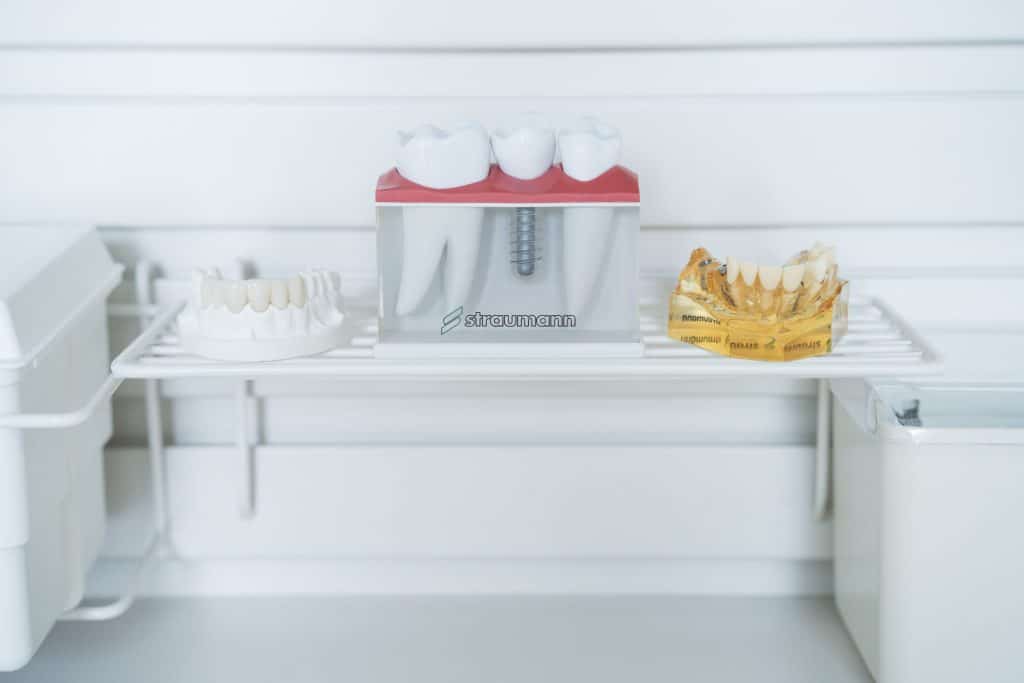

Fixing Dental Implant problems
Rockwall & Paris, Texas
At Northeast Texas Periodontal Specialists, we use advanced technology to diagnose and plan treatments to ensure procedural success and optimize implant stability. While most implant procedures are successful, complications can occur which may require treatment or possibly even implant replacement. The two most common type of implant problems are an implant that is failing or loose due to poor implant placement or because the implant failed to fully integrate with the bone. The second most common cause for implant problems is the gum and bone becoming infected, which can result in Peri-Implantitis, a condition similar to gum disease.
Regardless of the reason, Dr. Hodges, Dr. Sheppard and our team are experts at correcting implant problems. To learn more about common implant problems and how they can be corrected, or other services offered at our office, please refer to the following. To schedule an appointment for a consultation, contact our Rockwall office today at (972) 771-8640 or our Paris office at (903) 785-4832.
Correcting Dental Implants
Consultation & Process
The first step in correcting implant problems is to identify the underlying reason why problems are occurring. To determine the cause of your implant problem, we will perform a thorough examination, which may include diagnostic exams. In an attempt to avoid the need to treat the area surgically, we will use our perioscope, a tiny camera that can be placed in your gum pocket around the implant. Once the underlying issue is diagnosed, we will explain the issue, go over possible treatment options, and answer any questions you may have.
If the underlying problem is an infection, we will gently probe and measure the gum pockets around your implant to determine if you have peri-implantitis, and if so, its severity. We will also use digital images and digital X-rays to examine the gum, bone, and implant to then determine the cause of your peri-implantitis.
Implant problems can develop for a variety of reasons, but the most common reasons implant issues occur is due to incorrect implant placement or dental cement leakage and being trapped below the gum tissues. If the implant was not placed by a highly trained professional, there is a chance it was positioned at an incorrect angle or in an area that does not contain enough bone to support it. If this is the underlying cause, replacement of the implant may be necessary. Dental cement leakage occurs when too much dental cement is used, to the point where it leaks onto the gums, which can cause an infection to develop. This has been known to occur several months and sometimes years after a crown has been placed on the implant.
If the underlying issue is peri-implantitis, this issue can sometimes be corrected with a deep cleaning. Strengthening gum tissue support with a gum graft, or repairing a bone defect with a bone graft may also correct your underlying issue. If these procedures are performed to correct your implant problem, we will also frequently apply growth proteins to the treated area to help facilitate the healing process, reduce swelling, and prevent infection.
Although we will do everything we can to restore the health and stability and health of your dental implant with minimally invasive procedures, if the underlying issue is significant, or if the implant was not placed properly in the first place, it may be necessary to remove the implant entirely and replace it with a new one. Although replacing an implant is not ideal, the failure of this implant does not mean your next implant is at any greater risk of not being successful.
If you are experiencing any issues related to your dental implants, contact our office as soon as possible and we will do everything we can to identify and correct the underlying issue.
Peri-Implantitis
Symptoms
One of the most common type of implant problems that occurs is peri-implantitis. If you notice any of the following occurring at the implant site, contact our office as soon as possible, as this may indicate peri-implantitis.
- Gums become bluish purple or red
- Gums that bleed while brushing your teeth
- Metal threads of implant are exposed
- Swollen gums
- Increased sensitivity
- Gum pockets have deepened
- Pus coming from the gums or implant or gums
Dental Implant Correction
costs associated
Procedural costs will depend largely on the underlying issue, whether the implant needs to be replaced, type of dental sedation administered, number of appointments necessary, and your dental insurance plan. It is also important to factor in the cost of the initial visit and any follow up appointments that may be necessary.
For patients who are covered under a dental insurance plan, although we are not in-network, we will gladly help prepare and file your claim to ensure you receive your maximum reimbursement. Payment is due in full on the day of treatment. We accept cash, check, Visa, Discover, Mastercard, and American Express. If you are concerned about the cost of receiving treatment, please know that we offer our patients Compassionate Finance, which offers a variety of payment solutions with fixed interest rates and manageable monthly payments and CareCredit®, which offers 24-monty payment plans with zero interest, as well as low-interest financing for 24-60 months.
Read Our Reviews






